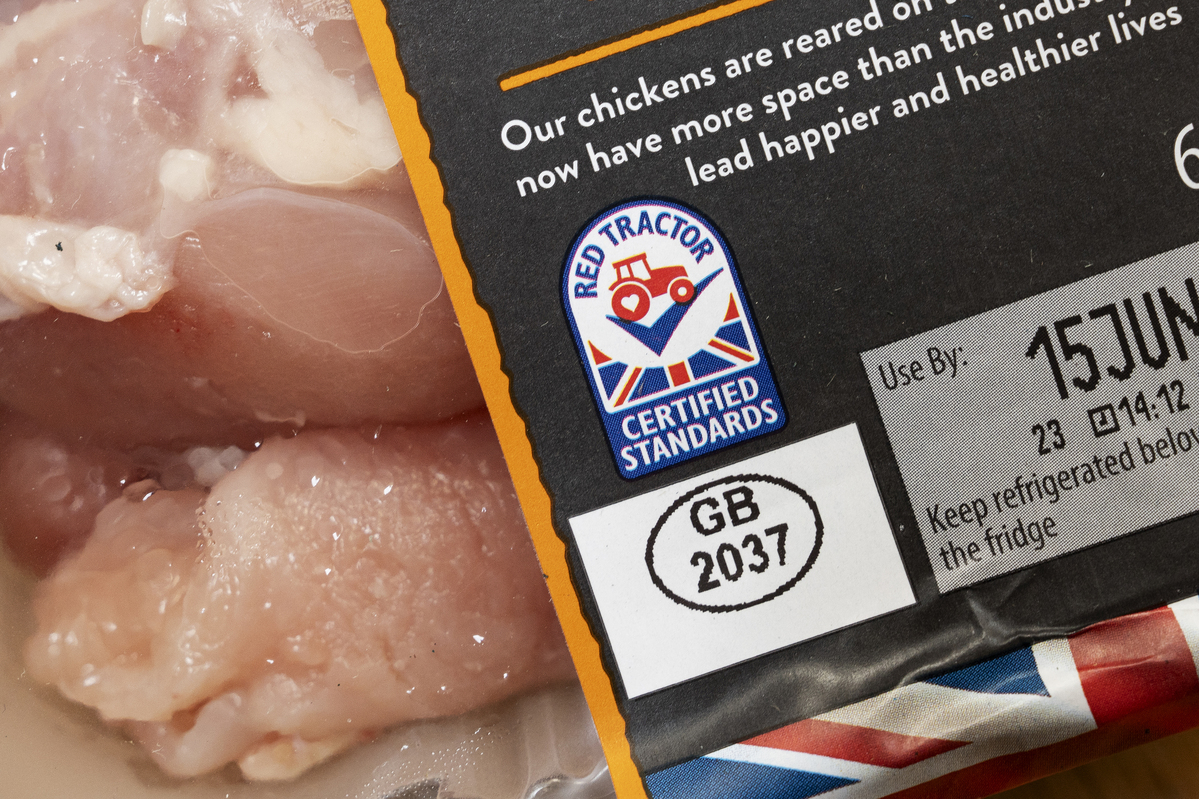The consultation explored ways to improve country-of-origin labelling for certain goods, including how and where this information is displayed and which products should be included. It also covered potential labelling developments for the out-of-home sector.
In addition, it proposed mandatory 'method of production' labelling for pork, chicken and eggs, covering both domestic and imported products. This included a five-tier system reflecting standards such as stocking density, outdoor access and environmental enrichment.
NFU Position
Written by the NFU Food Business Unit
The NFU welcomed the feedback from individuals and organisations that responded to the consultation and supports improvements to country-of-origin labelling. This includes extending labelling requirements to cover minimally processed meat products, such as sausages and bacon, where the origin is not always clear to consumers.
The NFU also supports strengthening the rules around the use of national flags on packaging to prevent misleading claims and making country-of-origin information clearer and more accessible for online shoppers.
In addition, the NFU supports proposals that the out-of-home sector should display the country of origin on food served.
However, in regard to the proposal to introduce mandatory standards labelling for pork, chicken and eggs, the NFU believes that introducing a production or welfare labelling system risks oversimplifying a complex area, potentially confusing consumers and placing unreasonable burdens on food and farming businesses.
Method-of-production labelling
While consultation responses showed strong support for method-of-production labelling, the NFU urges the government to establish core environmental and animal welfare standards in law for all agri-food imports. This would set a minimum threshold that imports must meet to access the UK market, ensuring that overseas producers adhere to standards comparable with those required of UK farmers.
It is important to recognise that the method of production does not always determine the level of animal welfare. A tiered labelling system could incorrectly suggest that one method guarantees higher or lower welfare than another. In the egg sector, production labelling works well because the systems are clearly defined and recognised by consumers — this clarity is harder to achieve in other sectors where production systems are more varied.
NFU concern
The NFU raised concerns that if method of production labelling was extended to the dairy, beef and lamb sectors it would add huge complexity to these supply chains. These sectors do not have clearly defined systems; animals can spend time in different systems and there is no typical system across sectors.
Ultimately, high standards of farm management, attention to detail and professional care for livestock are far more important for animal welfare than production method alone. While we recognise the strong demand for clearer welfare information, we believe this is best delivered through a combination of tools — including country-of-origin labelling, assurance schemes, marketing terms and detailed online resources.
The UK’s food system is fully integrated across the four nations, although food labelling and animal welfare are devolved policy responsibilities. Recognising this, the UK and devolved governments will continue to work closely together on this matter, considering existing food plans and strategies across the four nations, such as the Welsh Governments’ work to develop a national Good Food Nation Plan.
Next steps
The UK Government has said it will consider all views as it continues policy development and will work with relevant parties, including farming and food industry stakeholders. The role of method-of-production labelling reform will form part of a wider approach to animal welfare and food strategy, in collaboration with the devolved governments on food labelling matters.
This remains an ongoing area of work and the NFU will continue to engage closely with government to help shape any future labelling requirements.
